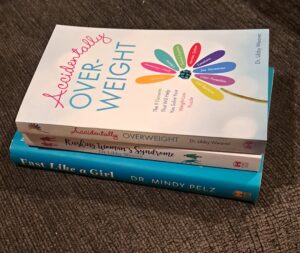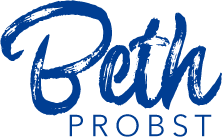
If you know me at all, it is no secret that I’ve been on a multi-year health journey battling my weight. I imagine my father’s leg amputation is really when I amped this journey up wanting to understand my family’s health history and my ongoing battle of the mid-section bulge. To say it has been a freeway to success is an understatement. If anything, it’s been a series of pothole filled alleys and a broken GPS.
I could credit misinformation, willpower, genetics or a world pandemic as just some of the distractions that have led me astray. But the truth is, being healthy is hard work. It is an ongoing challenge that involves learning and relearning and learning and relearning over and over and over again. It is challenging just to know who and what information to trust. Afterall, the cabbage diet was a real thing when I was growing up.
That said, I do think a few things in the past year helped me. One, I piloted a continuous glucose monitor a year ago to understand how my body reacts to sugar. Two, I took a Perimenopause course this summer that helped me understand many of the symptoms I’m having (and confirm I am not losing my mind). Three, I took this information and found a few books that are helping me redefine my health journey and focus on the long game versus the yo-yo scale game I’ve been playing for decades.
On the off chance this is helpful, I thought I’d share these books with you.
Accidentally Overweight and Rushing Women’s Syndrome by Dr. Libby Weaver
Dr. Libby Weaver is an Australian nutritionist and serial book writer. I am confident there are thousands of books with her information in them but after hearing my Perimenopause instructor pitch Rushing Women’s Syndrome a few times, I started down the Dr. Libby road and am learning a ton that isn’t scale focused but rather energy, vitality and productivity based. The books breakdown science in a digestible way that don’t focus on losing weight but instead understanding the science behind why the weight got there in the first place. Sure, it is easy to conclude the extra calories and one must never discard that, but context matters. As does, this notion that calorie reduction without ensuring your machine aka your body isn’t functioning is like putting premium unleaded gas in a diesel machine.
Some simple changes that I’m making as a result of her books: gut and liver repair via nutrition and activity, exploring how I measure productivity and the value of rest, diversifying my work-out routine to reduce cortisol surges, deep breathing, and incorporating more water and greens into my diet. Strength training and gratitude and contemplating a reduction in coffee. Note – contemplating. I am not Superwoman. Baby steps.
The biggest take-away in these books is just how complex our bodies are and a great reminder of how many things we take for granted that keep our body producing energy, excreting waste, and adapting to our changing environment and that it’d be worth treating it a little better. To nourish it the same way I encourage my kid to eat a banana versus a hot dog before hitting the basketball court.
Fast Like a Girl by Dr. Mindy Pelz
I know intermittent fasting is all the rage right now and I specifically said I’m trying to get away from the yo-yo diet mode of my past. But hear me out, this book was a game changer for a different reason. I recently saw a meme that said what we call intermittent fasting now used to be called skipping breakfast. For some reason, skipping breakfast got a bad rap for a long-time. And, I do not claim to be any sort of expert in the when to fuel your body approach to life. What I do know is this book explained why some mornings in my cycle I may not be hungry and others I want a 4 course breakfast. It helped me understand everything that needs to happen for us to digest the food we stuff ourselves with and the benefits of giving our belly some rest.
My longest fast to date has been 18-hours with a ketosis score of .2 so I am not embracing everything in this book by a long shot. Call it a lack of discipline or a desire to eat food, not sure. Still working on that part. What I do know is that I feel fabulous with a 14-16 hour fast during the power phase of my cycle. That I understand what my body uses for fuel a bit better and what it takes to make that fuel. That I understand a bit better the negative impact of too much sugar in my body. Critical lessons in an on-going journey to understand how I operate.
These books focus on the science behind what makes our body tick. As a true product of Generation X, I love researching and understanding how and why action A impacts action B. In the coming months, I hope to share more about the specific outcomes that come with finding joy in the journey is relearning what makes me, me.
If you enjoyed this and want to hear more in the future, please consider subscribing to my e-newsletter here.
